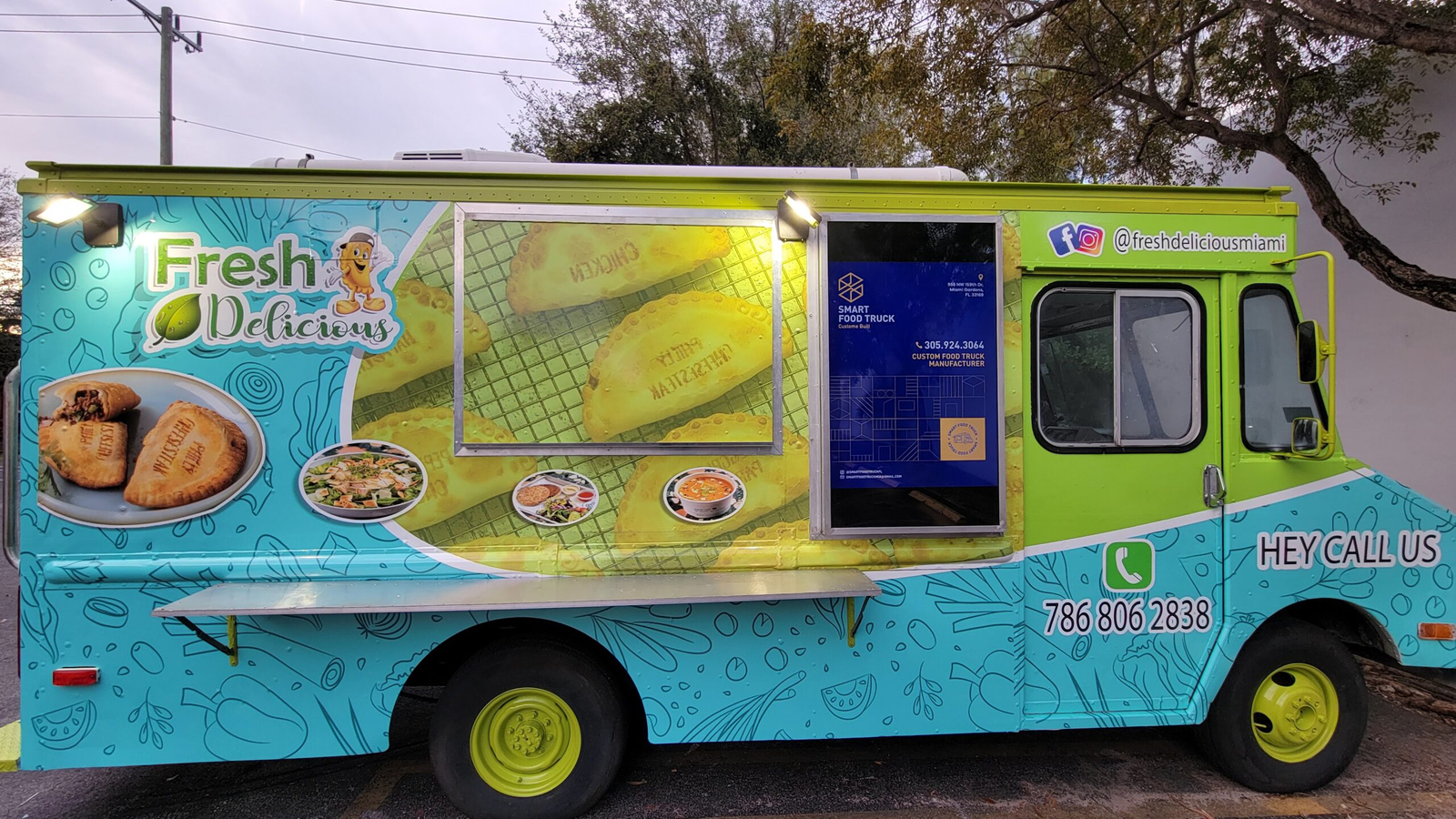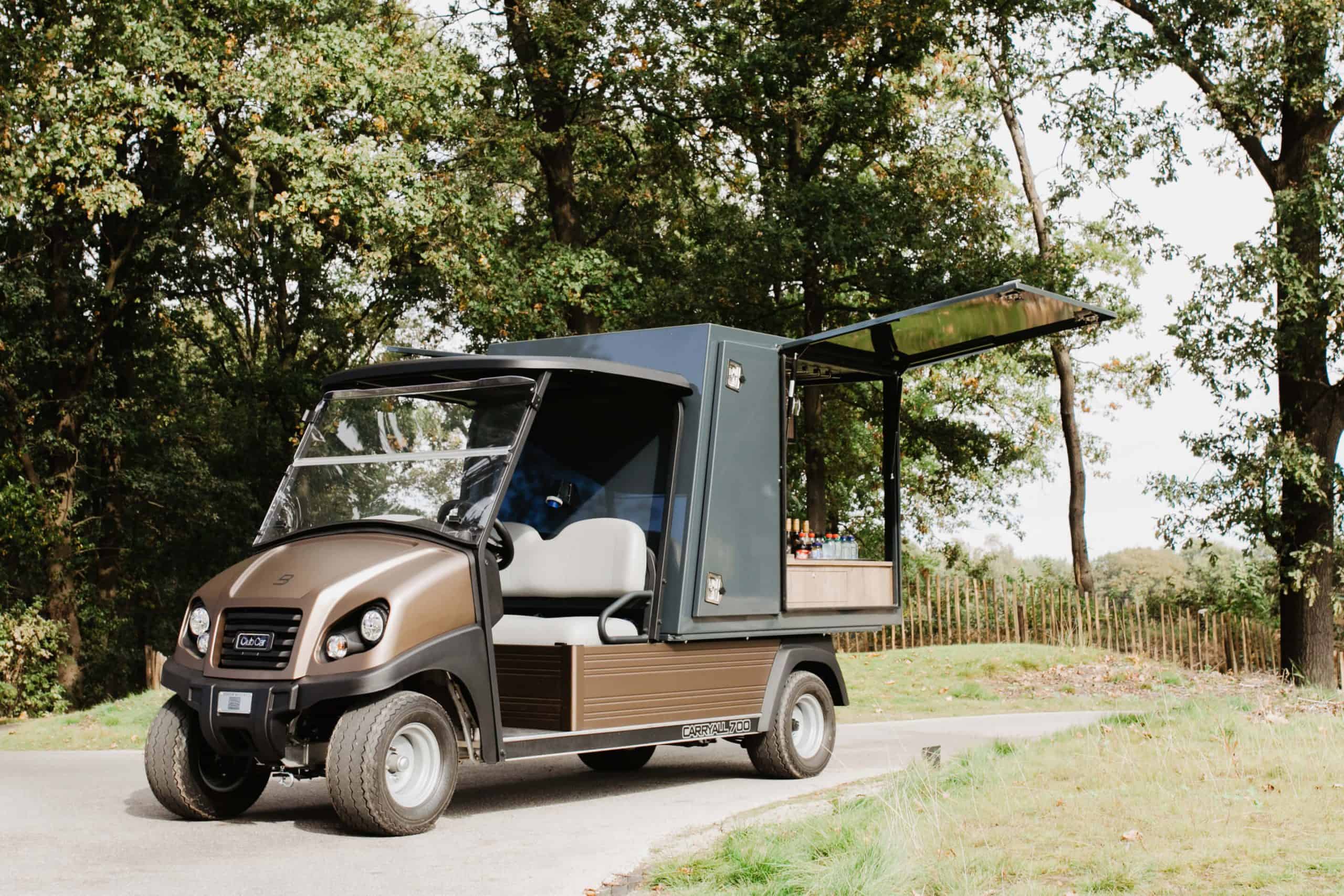How Much To Rent A Food Truck: A Comprehensive Guide pickup.truckstrend.com
The aroma of gourmet street food, the vibrant graphics of a mobile kitchen, and the bustling energy of a pop-up culinary experience – food trucks have revolutionized the dining landscape. For aspiring restaurateurs, seasoned chefs, or event organizers, the allure of a food truck is undeniable. However, purchasing a fully equipped food truck can be a substantial investment, often ranging from $50,000 to over $200,000. This is where renting a food truck emerges as a highly attractive and practical alternative.
Renting a food truck offers a flexible, cost-effective, and lower-risk pathway to enter the booming mobile food industry, test new concepts, or cater specific events without the colossal upfront capital expenditure and long-term commitment of ownership. But how much does it actually cost to rent a food truck? The answer, like a well-crafted menu, has many ingredients. This comprehensive guide will break down the various factors influencing rental prices, explore different rental models, outline the benefits, provide a step-by-step rental guide, highlight hidden costs, and offer practical advice to help you budget and succeed in your mobile culinary venture.
How Much To Rent A Food Truck: A Comprehensive Guide
Factors Influencing Food Truck Rental Costs
Understanding the cost of renting a food truck requires a close look at several key variables. These factors interact to determine the final price you’ll pay:
-
Rental Duration: This is perhaps the most significant determinant.
- Hourly: Rare for full trucks, but sometimes offered for very short events (e.g., 2-4 hours) with a minimum charge.
- Daily: Ideal for one-off events, festivals, or short-term promotions. Daily rates are higher per day than longer rentals.
- Weekly: Suitable for multi-day events, catering gigs, or testing a concept for a short period. The daily rate typically decreases.
- Monthly: The most cost-effective per day, perfect for seasonal operations, extended pop-ups, or long-term concept testing.

-
Truck Type and Size:
- Basic vs. Gourmet: A simple concession trailer or a bare-bones truck with minimal equipment will be cheaper than a custom-built, fully-loaded gourmet kitchen on wheels.
- Size: Larger trucks generally command higher rental fees due to higher acquisition costs, maintenance, and storage.

-
Included Equipment and Features:
- Bare Shell: Some companies rent out empty trucks or trailers, allowing you to install your own equipment. This is the cheapest option but requires significant effort.
- Basic Setup: Includes essential cooking equipment (e.g., griddle, fryer, refrigerator, prep tables) and basic utilities.
- Fully Equipped/Specialty: May include specific high-end equipment like pizza ovens, espresso machines, specialized smokers, or advanced POS systems, driving up the cost.
- Generator: Is a generator included and is it propane or diesel? This impacts fuel costs.
-
Location and Market Demand:
- Rental prices can vary significantly by geographic location. Major metropolitan areas with high demand for food trucks (e.g., New York, Los Angeles, Austin) will typically have higher rental rates than smaller cities or rural areas.
- Seasonality also plays a role; peak event seasons (spring and summer) may see higher prices due to increased demand.
-
Insurance Requirements:
- Some rental companies include basic liability insurance, but often you’ll need to provide your own commercial auto and general liability insurance policy, which is an additional cost. Always clarify what is covered.
-
Mileage and Delivery Fees:
- If the truck needs to be transported to your event location, a delivery and pickup fee might apply, especially for longer distances.
- Some contracts might have mileage limits, with extra charges for exceeding them.
-
Deposit and Cleaning Fees:
- A refundable security deposit is almost always required to cover potential damages or excessive wear and tear.
- A non-refundable cleaning fee may be charged to ensure the truck is returned in a ready-to-rent condition.

Types of Food Truck Rentals and Their Costs
Food truck rentals typically fall into a few categories, each with different cost structures and ideal use cases:
-
Event-Specific (Daily/Hourly):
- Use Case: Private parties, corporate events, weddings, short-term festivals, single-day promotions.
- Cost: This is the most expensive option on a per-day basis due to the quick turnaround and administrative overhead. Expect to pay a minimum daily rate, often with an hourly extension option.
- Pricing Range: $300 – $800+ per day. Hourly rates, if offered, might be $50-$150/hour with a 4-hour minimum.
-
Pop-Up/Seasonal (Weekly/Monthly):
- Use Case: Testing a new menu concept, operating at a farmer’s market for a season, long-term catering contracts, or establishing a presence in a specific recurring location.
- Cost: The daily rate significantly decreases as the rental duration increases. This offers better value for sustained operations.
- Pricing Range:
- Weekly: $1,500 – $3,500
- Monthly: $4,000 – $10,000+
-
Empty Shell Rentals:
- Use Case: For those who own their equipment and simply need the mobile structure, or for production companies needing a customizable vehicle.
- Cost: Generally lower than fully equipped rentals, as the rental company isn’t providing the valuable kitchen machinery.
- Pricing Range: Varies widely, but could be 20-40% less than a comparable equipped truck.
Benefits of Renting a Food Truck
Renting offers compelling advantages over purchasing, especially for new entrants or specific projects:
- Lower Upfront Cost & Reduced Risk: Avoids the massive capital investment of buying, freeing up funds for inventory, marketing, and staffing. If the venture doesn’t pan out, you’re not stuck with a depreciating asset.
- Flexibility & Concept Testing: Allows you to test different menus, locations, and business models without long-term commitment. You can experiment with different cuisines or operating hours to see what resonates.
- No Maintenance Worries: The rental company is typically responsible for major maintenance, repairs, and inspections, saving you time, money, and stress.
- Access to High-Quality Equipment: Renting allows access to professional-grade kitchen equipment that might be too expensive to purchase outright.
- Faster Market Entry: Bypass the lengthy process of custom building or finding the right truck to buy, enabling quicker launch.
- Scalability: Easily scale up or down your operations by adjusting rental duration or even renting multiple trucks for large events.
How to Rent a Food Truck: A Step-by-Step Guide
Renting a food truck is straightforward if you follow a structured approach:
-
Define Your Needs:
- Menu: What type of food will you serve? This dictates the necessary equipment (griddle, fryer, oven, refrigeration capacity).
- Duration: How long do you need the truck (hours, days, weeks, months)?
- Location: Where will you operate? This impacts local regulations and potential delivery fees.
- Capacity: How much prep space, storage, and serving window area do you need?
-
Research Rental Companies:
- Search online for "food truck rental [your city/state]" or "mobile kitchen rental."
- Look for companies with good reviews, clear pricing, and a diverse fleet.
- Some companies specialize in event rentals, while others focus on long-term leases.
-
Request Multiple Quotes:
- Contact several rental providers with your defined needs. Be specific about dates, desired equipment, and intended use.
- Ask for a detailed breakdown of costs, including the base rental fee, deposits, insurance requirements, delivery fees, and cleaning charges.
-
Review the Rental Contract Thoroughly:
- Insurance: Understand what coverage the rental company provides and what additional coverage you need (commercial auto, general liability).
- Maintenance & Breakdowns: What is the procedure if the truck breaks down? Who covers the costs? Is roadside assistance included?
- Mileage Limits: Are there restrictions on how far you can drive?
- Fuel & Utilities: Clarify responsibilities for fuel (vehicle, generator), propane, and water/wastewater.
- Cleaning & Damage: What are the expectations for return condition? What constitutes chargeable damage?
- Cancellation Policy: Understand the terms if you need to cancel.
-
Inspect the Truck (Pre-Rental):
- Before signing, thoroughly inspect the truck’s condition, both exterior and interior. Test all equipment (refrigeration, cooking appliances, sinks, generator).
- Document any existing damage with photos or video to avoid being charged for it later.
-
Understand Operational Costs:
- Remember that the rental fee is just one part of your overall budget. Factor in fuel, food inventory, staff wages, marketing, and the crucial element of permits and licenses.
Important Considerations & Potential Hidden Costs
While renting saves on upfront capital, there are several operational and regulatory costs that renters must account for:
-
Permits & Licenses (Crucial!): This is often the biggest "hidden" cost and challenge. You’ll need:
- Business License: For your mobile food business.
- Health Department Permit: Specific to mobile food units, requiring inspections and adherence to health codes. These vary greatly by county/city.
- Vending Permits: Required by cities/towns to operate in public spaces. These can be expensive and competitive.
- Fire Safety Permits: Often required for propane and cooking equipment.
- Always research local regulations well in advance of your rental period.
-
Commercial Insurance: Even if the rental company provides basic coverage, you’ll likely need your own commercial general liability and potentially commercial auto insurance to protect your business from claims related to accidents, injuries, or foodborne illnesses.
-
Fuel Costs: Food trucks, especially older models or those with large generators, can be fuel-intensive. Factor in fuel for both driving and operating equipment.
-
Propane & Water: You’ll be responsible for filling propane tanks for cooking and ensuring you have fresh water for sinks and emptying wastewater tanks.
-
Food Inventory: The cost of ingredients, packaging, and disposables.
-
Staffing: Wages for chefs, cooks, and counter staff.
-
Marketing & Branding: Temporary wraps or signage for your brand, social media advertising, and other promotional efforts.
-
Payment Processing Fees: Costs associated with POS systems and credit card transactions.
-
Commissary Kitchen Access: Many health departments require food trucks to operate out of a licensed commissary kitchen for food prep, storage, and waste disposal. This involves a separate rental fee.
Tips for a Successful Food Truck Rental
- Plan Meticulously: Outline your menu, target audience, locations, and operational flow well in advance.
- Budget Realistically: Account for all costs – rental, permits, insurance, fuel, food, labor, marketing, and a contingency fund for unexpected issues.
- Market Effectively: Use social media, local listings, and word-of-mouth to promote your presence.
- Focus on Efficiency: Optimize your menu and workflow to maximize speed and minimize waste.
- Prioritize Customer Service: A great experience encourages repeat business and positive reviews.
- Have a Contingency Plan: What if the generator fails? What if it rains? How will you handle unexpected crowds or slow periods?
- Network: Connect with other food truck operators, event organizers, and local businesses.
Price Table: How Much To Rent A Food Truck
| Rental Duration | Estimated Price Range (Base Rental) | Common Inclusions | Additional Costs (Typical) | Ideal Use Case |
|---|---|---|---|---|
| Hourly | $50 – $150 (4-hour minimum) | Truck & Basic Equip. | Delivery, Insurance, Fuel, Cleaning | Very short events, photo shoots |
| Daily | $300 – $800+ | Truck & Basic Equip. | Delivery, Insurance, Fuel, Cleaning, Deposit | One-off events, festivals, private parties |
| Weekly | $1,500 – $3,500 | Truck & Basic Equip. | Delivery, Insurance, Fuel, Cleaning, Deposit | Multi-day events, short-term pop-ups, concept testing |
| Monthly | $4,000 – $10,000+ | Truck & Basic Equip. | Delivery, Insurance, Fuel, Cleaning, Deposit | Seasonal operations, extended pop-ups, long-term testing |
| Empty Shell | $200 – $500 (Daily) | Truck only | Delivery, Insurance, Fuel, Cleaning, Deposit, Equipment Rental | Businesses with own equipment, film production |
Note: Prices are estimates and vary significantly based on location, truck type, included equipment, and market demand.
Frequently Asked Questions (FAQ) About Renting a Food Truck
Q: Do rental companies provide the food or ingredients?
A: No, food truck rental companies typically only provide the truck and its built-in equipment. You are responsible for sourcing and purchasing all food ingredients and supplies.
Q: Is insurance included in the rental cost?
A: Some rental companies may offer basic liability insurance, but it’s crucial to clarify the extent of coverage. In most cases, you will need to obtain your own commercial general liability and potentially commercial auto insurance to cover your operations and protect against various risks.
Q: Can I brand or customize the rented food truck?
A: Most rental companies allow temporary branding such as magnetic signs, vinyl decals, or banners. Permanent changes like paint or drilling are usually prohibited. Always check the rental agreement for specific guidelines.
Q: What permits and licenses do I need to operate a rented food truck?
A: This varies significantly by city, county, and state. You will typically need a business license, health department permit for mobile food units, and local vending permits for specific operating locations. It’s essential to research and secure these permits well in advance.
Q: Do I need a special driver’s license to drive a food truck?
A: For most standard food trucks, a regular Class C driver’s license (standard car license) is sufficient. However, if the truck exceeds certain weight limits (e.g., over 26,000 lbs GVWR), a commercial driver’s license (CDL) might be required. Always verify the truck’s weight and your state’s regulations.
Q: What if the rented food truck breaks down during my event?
A: Review your rental contract for breakdown policies. Reputable rental companies will have provisions for roadside assistance, emergency repairs, or even a replacement vehicle, though this is not always guaranteed.
Conclusion
Renting a food truck is a smart and strategic entry point into the dynamic and rewarding world of mobile gastronomy. It mitigates the significant financial risk associated with purchasing, offers unparalleled flexibility to test and refine your culinary concept, and allows for rapid market entry. While the base rental fee is a key consideration, a truly comprehensive understanding of "How Much To Rent A Food Truck" necessitates factoring in all associated costs, from permits and insurance to fuel and staffing. By meticulously planning, budgeting wisely, and understanding the nuances of the rental process, you can leverage a rented food truck to bring your delicious creations to the streets and achieve your entrepreneurial dreams.


